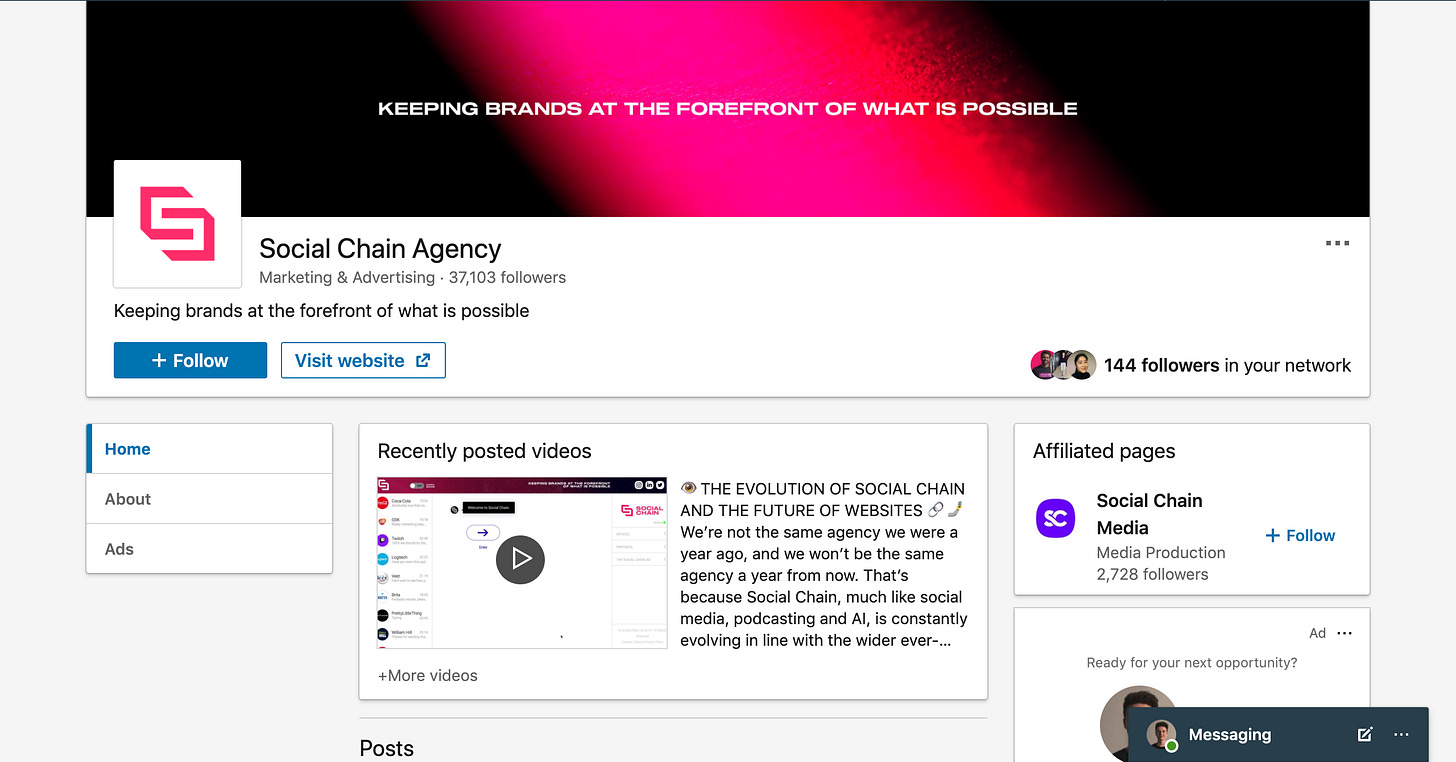Energy Management vs. Time Management

Hey! Today’s email is going to be about the fascinating topic of “Energy Management”. Admittedly, I get lost in all the different productivity terminology, but the two schools of thought of Energy Management and Attention Management have recently intrigued me.
I’d just like to thank you all again for being subscribers, we are 65 people strong which is incredible. Last week’s email “How To Contact Anyone Successfully” became a full-blown article, but don’t worry, I’m aiming to be a lot more concise with my writing. BY THE WAY, if this email usually goes to the Promotions tab or Spam, please add joegannon@substack.com as a contact or move the email to your Inbox 😁
One thought: We Should Focus on Energy Management 🔋
Our default way to plan our days is to focus on Time Management. We take our calendar and a long list of to-do’s and simply pin each task to a time we’d like to get it done. In my own experience, as hard as I have tried to allocate a task of some sort to every available hour in the day, it’s never actually been that fruitful or pleasant.
This can happen because we:
Overestimate how much we can get done in a day
Underestimate how long tasks can take
Get distracted and procrastinate
Ignore how different tasks take up varying levels of energy
Attention management can be viewed as a subset of energy management:
Attention management is the practice of controlling distractions, being present in the moment, finding flow, and maximising focus, so that you can unleash your genius. It's about being intentional instead of reactive.
In normal words, attention management is more intentional about doing certain tasks at certain times, so that we can find flow and focus more easily. By managing our attention, we can be far more efficient through single-tasking - focusing on just one task in a block of time - and reducing distractions, for example, using Podomoro timers or Google Chrome extensions like Forest and Momentum.
Energy Management

Energy management places a focus on the energy reserves we have every single day. Some tasks require more energy than others, particularly higher-leverage tasks which are the projects and activities that can move the needle and require deep thought. In comparison to the smaller, lower-energy tasks that are typically low-leverage in nature, like admin and emails.
I believe energy management to be a healthier alternative to time management, as it involves listening to your body. We can schedule our day to do the tasks that take up the most energy when we have the most energy, and it places a healthier focus on rest and recovery.
This email was inspired by the incredible article Manage Your Energy, Not Your Time by Tony Schartz, Founder of The Energy Project and author of The Power of Full Engagement. I’ve not read this book yet, but I would certainly recommend the Harvard Business Review article if you are interested in this topic.

This weekend, I took time off (that’s not me) which is something I normally don’t do. I’m usually still plugging away at something, but I don’t want to be that person. It’s common to feel guilty when having downtime, which is usually why productivity can get a bad name.
Always feeling like you should be doing something is not the way to live your life.
On a recent podcast where Tony Schwartz was interviewed, he described this feeling of guilt in a way that really hit home for me. He said to imagine the ‘always working’ mentality as a bank: The misconception is that we can keep withdrawing from our energy ‘banks’ without ever stopping to deposit ‘money’ in. Our daily energy is limited. It is not an infinite resource where we can sustain high-performance indefinitely.
Sustaining High-Performance
To continue performing at our best, we must regularly rest and replenish our energy stores. You need this time to build up your energy banks so when you are working hard, you can make those deposits. This is reiterated by some of the greatest entrepreneurs who stress the importance of being: “Really ON when you are on, but really OFF when you are off.” This might sound simple, but are you really focusing on your work when working, and staying present with family and friends when not?
There comes a point, usually before people feel burn out, where we need to fully focus on recovering. When we try to juggle work and rest we find ourselves not going deep enough into this recovery period. If you’ve answered emails on a weekend, you’ll know exactly what I mean by this. You press play on ‘work mode’, even for a second, and then you are swamped with thoughts about work for hours and hours afterwards.
We all feel energised from different activities and this is what I love about this way of thinking. For some people, going for a run is energising and helps you to switch off and feel great afterwards. How do you feel when you do a good deed, energised right? We can either switch off from ‘active’ activities, like playing tennis with a friend, or from something more ‘passive’, like reading a book or watching a film. Whatever you enjoy, focusing your attention on something else will help you to feel better.
Enjoy your Sunday folks!
Joe
Content tip of the week 🚀
I’m going to make a video tutorial about this soon but I wanted you guys to be the first to know! Company pages have been pretty redundant on LinkedIn up until now, with content always performing best from a profile. Which of course makes sense, as people want to engage with a human and not a logo.
I noticed that when you go onto a company page, there seems to be two new default views. If a company page has set-up ‘Community Hashtags’, you will see these hashtags. If the company hasn’t, it will instead show ‘Recently Posted Videos’.


I think this is a great opportunity, especially if you don’t post regularly as your business, to have a short welcome message on your company page. Simply post this as a video, and if it’s the last video you post, you can greet new page visitors to your business. Instantly making an impression, instantly humanising your business.
Articles of the week ✍️
Manage Your Energy, Not Your Time - Tony Schartz, Harvard Business Review
How To Maximise Your Energy Levels - Tony Schwartz interviewed by Noah Kagan
This Week’s YouTube Video - Subscribe here! 🎥

I’m Joe, a content marketer passionate about personal development and psychology. Every Sunday, I write an email newsletter with 1 thought, 1 content tip and 1 article I’d recommend. Usually, I go over-board and provide a little more 😁
Add me on LinkedIn + subscribe to my YouTube channel for LinkedIn tips!



